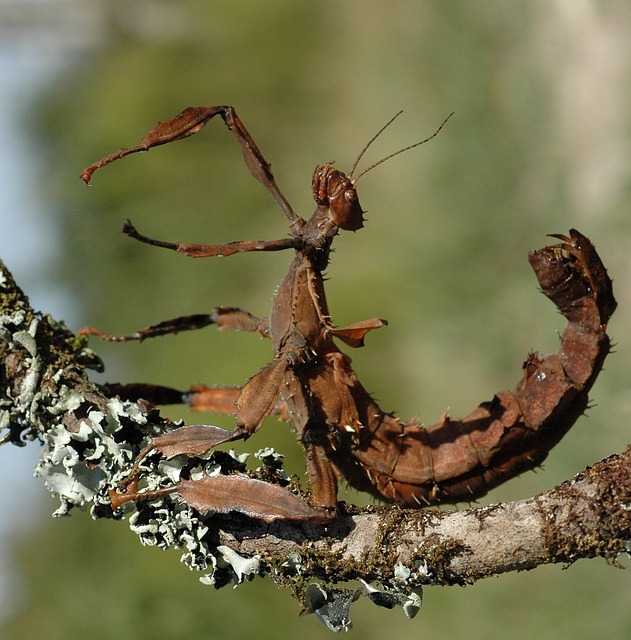Scorpions are attracted to homes due to climate, shelter, water, and hidden spaces, making residential scorpion control essential. They prefer dark, secluded areas like cracks in walls, beneath debris, and around pipes. Effective control involves regular inspections, sealing entry points with caulk or screens, eliminating water sources, reducing clutter, and using natural repellents like essential oils. Combining these strategies creates an inhospitable environment, deterring scorpions and ensuring a safer home.
Scorions may be small, but they pack a big punch. Understanding their behavior and habitat preferences is key to effective residential scorpion control. This guide delves into the science behind these creatures, identifying common entry points and attractants in your home. From professional-level repellents to natural solutions, we provide practical strategies for long-term protection against scorpions, ensuring a safer, pest-free living environment.
Understanding Scorpion Behavior: Key Factors Attracting Them to Your Home
Scorpions, being arachnids, have distinct behaviors and preferences that can make them drawn to certain environments—particularly homes. Understanding their behavior is a crucial step in implementing effective residential scorpion control measures. These creatures are primarily nocturnal hunters, actively seeking out food sources during cooler parts of the day or night. They prefer warm, dry climates and are often attracted to areas with abundant shelter and water.
Key factors that may draw scorpions into homes include poorly maintained outdoor spaces, such as overgrown vegetation, piles of wood or debris, and cracks in foundations. These hiding spots offer scorpions protection from predators and extreme temperatures while allowing them easy access to potential food sources like insects and other small creatures. Additionally, water sources like leaky pipes or stagnant pools can be strong attractants, highlighting the importance of regular maintenance and repairs in scorpion-prone areas.
Identifying Common Scorpion Habitats and Entry Points in Residential Spaces
Scorpions are drawn to certain environments and entry points in residential spaces, making it crucial for homeowners to understand their potential habitats. Common areas where scorpions thrive include dark, secluded corners, cracks in walls or foundations, beneath debris or landscaping, and around pipes or utility lines. These creatures are adept at navigating through narrow gaps, so even tiny openings can serve as entry points.
Residential scorpion control begins with identifying these hidden spots. Homeowners should perform regular inspections, especially during the cooler months when scorpions are more active. By recognizing potential habitats and sealing off entry points with caulk or mesh screens, you can significantly reduce the likelihood of scorpion infestations.
Effective Scorpion Repellent Measures: A Professional's Guide
Scorpions are often unwelcome visitors to our homes, but effective scorpion repellent measures can help keep them at bay. Professional pest control experts recommend a multi-pronged approach to residential scorpion control. First, identify and eliminate potential water sources, as scorpions are attracted to moist environments. Regularly inspect and repair any leaks or standing water around your property. Next, reduce clutter and remove unnecessary items from your outdoor spaces, as scorpions love hiding in dark, secluded areas. Keep your yard tidy and mow the grass regularly to minimize hiding spots.
Additionally, seal up any cracks or gaps in your home’s exterior, including windows, doors, and utility lines. Scorpions can squeeze through tiny openings, so a thorough inspection is crucial. Use weatherstripping and caulk to create a barrier against these intruders. Planting certain herbs like lavender, rosemary, and lemongrass around your property can also act as natural scorpion repellents. Combining these professional strategies will significantly reduce the presence of scorpions in and around your home, providing you with greater peace of mind.
Natural Solutions and Long-Term Strategies for Persistent Scorpion Control
Natural Solutions and Long-Term Strategies play a pivotal role in effective Residential Scorpion Control. Instead of relying solely on chemical pesticides, which can have environmental impacts, consider organic alternatives like essential oils, citrus scents, and certain plants known to repel scorpions. These natural methods not only reduce potential health risks but also contribute to a safer and more eco-friendly living environment.
For persistent scorpion control, implementing long-term strategies is key. This includes regular cleaning, sealing entry points, maintaining proper lighting, and keeping areas around the home free from debris or potential hiding places. Additionally, using natural repellents in conjunction with these measures can significantly deter scorpions from taking up residence in your home. By combining organic solutions with proactive maintenance, you create an inhospitable environment for scorpions, ensuring a safer and more comfortable living space.
Professional advice on reducing scorpion attractants is essential for effective residential scorpion control. By understanding scorpion behavior, identifying common habitats and entry points, implementing effective repellents, and exploring natural solutions along with long-term strategies, homeowners can significantly reduce the presence of these pests. Remember that persistent control requires a comprehensive approach tailored to your specific situation, ensuring a safer and more comfortable living environment.
